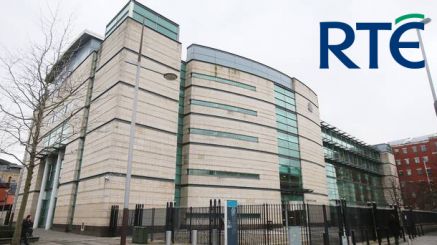A New Podcast Sheds Light On The Evidence And Jury's Decision In The Belfast Rape Trial

It's been eight months since perhaps the most significant court case in Ireland of 2018 ended. The trial in Belfast of four men - involving two high profile sports stars, Paddy Jackson and Stuart Olding, - who were accused of raping a young woman at Jackson's home in 2016, attracted national attention throughout its duration. After a lengthy public and private battle, the rugby players were found not guilty.
In addition, Blane McIlroy was found not guilty of exposure and Rory Harrison was found not guilty of perverting the course of justice and withholding information.
With that in mind, RTÉ has released a podcast which delves into the details of the trial which, until now, weren't fully accessible to the public. With it being one of the most talked about cases to have passed through the Northern Irish courts in recent history, the podcast includes the reasoning behind the jury's verdict, a discussion around the widespread media coverage, the protests and the commentary about the case on social media.
The documentary puts you in the position of the jury and gives you a sense of why the jury came to a not guilty verdict.
The podcast features interviews with the two leading barristers in the case - Toby Hedworth QC for the Prosecution and Brendan Kelly QC for Paddy Jackson. Both barristers discuss their opposing positions in the case.
The trial continues to be a topic of interest for the public and has raised a much-needed discussion around the judicial processes surrounding rape cases. Recently, in the wake of a rape trial conducted in Cork wherein the defending barrister argued the plaintiff's choice of underwear as being a pertinent factor the jury ought consider when adjudging whether she'd granted consent, TD Ruth Coppinger held up a thong to symbolise the treatment of the victims in rape trials.
On November 20 the Gillen Review Panel published a report that recommended changing procedures around serious sexual assault trials in Northern Ireland.
The panel recommended that the public should not be allowed access to a trial as it is difficult to testify about intimate matters. Members of the public, including a woman with a young boy and people who popped in during their lunch break, were present during the trial.
To download and listen to the podcast click here.